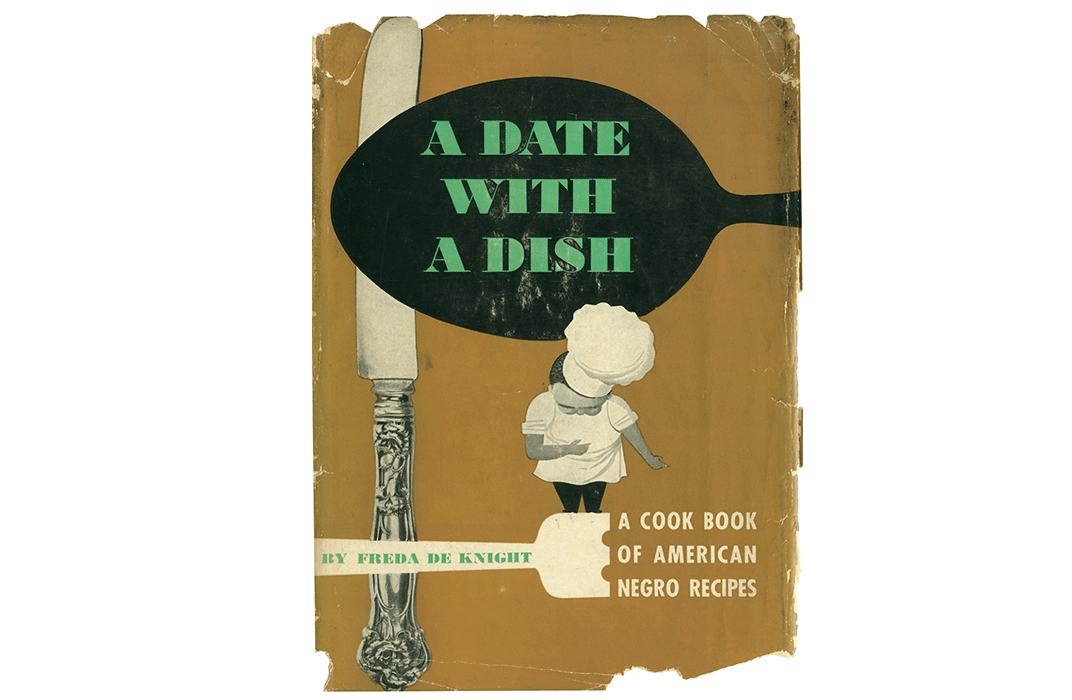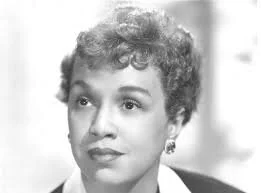The Ebony Cookbook + Everyday Cake
First up in this Culinary Cookbook Celebration of Black History is The Ebony Cookbook! I received this book as a gift from my Great Grandma when I was first starting to show my prowess as a cook when I was a teenager. All I can say is “my goodness!” because I didn’t know the gem I had in my hands until many years later. Let me tell you about this pivotal cookbook...
The Ebony Cookbook actually began as a monthly culinary column called “A Date with a Dish” in Ebony Magazine. It was started in 1946 by their first food editor, Freda DeKnight, who made a concerted effort to bring international attention to the importance of African American dishes. A notable moment in the column’s history was when the illustrious Lena Horne was featured in Ebony Magazine’s February 1947 issue. She cooked East Indian Chicken, a Trinidadian dish, for her feature “Date with a Dish: Lena Horne’s Valentine Party.” Having a notable and glamorous figure like Lena Horne cooking a dish for this column was strategic in elevating African American cuisine on the grand culinary stage.
A year later in 1948, Freda DeKnight published her first and only cookbook, by the same name of her monthly column, A Date with a Dish: A Cookbook of American Negro Recipes. It became a national best seller where it was widely beloved in the African American community and beyond. In 1962, A Date with a Dish was renamed The Ebony Cookbook. Freda DeKnight’s work with this cookbook truly cemented her as a hidden figure in the culinary world. She wanted to make it very clear that African American cooking is so much more than the stereotypes that are presented to the public. I honestly feel that her message was received!
The second paragraph in the preface of The Ebony Cookbook is profound and it states:
“It is a fallacy, long disproved that Negro cooks, chefs, caterers, and homemakers can adapt themselves only to the standard Southern dishes, such as fried chicken, greens, corn pone, and hot breads. Like other Americans living in various sections of the country, they have naturally shown a desire to become versatile in the preparation of any dish, where it is Spanish, Italian, French, Balinese or East Indian in origin.”
As Black Americans in the United States, we are not a monolith. Our presence and impact on cooking span across all parts of the country. This book covers the fact that we are more than the stereotype of being solely “southern black cooks.” Yes, we have mastered and have pride in our delicious southern dishes like fried chicken, collard greens, sweet potato pies and etc. However, we’ve always had to adapt to life around us and that has created an innate sense of versatility where we had to be the best, just to get by in this life. Cooking is definitely part of this fact.
It’s imperative that we are not pigeonholed by the thoughts and expectations of others as well as ourselves when it comes down to our talents in the kitchen based on how we look and the regions we’ve lived in. I’m a proud southern black woman raised in North Carolina, so I know my stuff in the kitchen when it comes to southern cuisine. I make a damn good roasted Sunday bird, collards, and potato salad, which are southern staples. However, I’m also able to learn and make amazing dishes from places all over the world such as Ethiopia, Italy, and especially now that I live here, Japan. This is my story and it’s the same shared story for so many Black cooks all over.
The Ebony Cookbook is a foundational cookbook that needs to be in every Black household, hands down, due to it being categorically sound and robust. It has a plethora of amazing dishes, sauces, and guides at the beginning of each section to help take your dishes from ordinary to extraordinary! It even has menus for special occasions like Easter Sunday Breakfast and Ebony’s Spring Fish Menu. It also contains a section that I love called “A Guide for the Housewife” which is honestly a guide for how to cook in general. This guide contains a great glossary of cooking terms, oven and deep-fat frying temperatures, as well as a thorough guide on which herbs and spices pair well with different meats, fish, vegetables, fruit, and more.
This cookbook is phenomenal and I’ve made mouth-watering memories from it! Some of my favorite dishes I’ve made are Creole Shrimp No. 1, Soft Shell Crabs, Potato Salad No. 2 (I always reference this when I’m making my potato salad), and today’s featured recipe called Everyday Cake.
This is a versatile cake that can be customized with different fruits, nuts, and toppings. It is a true vessel for almost any type of dessert. It’s light yet slightly dense at the same time which means it can hold syrups for soaking and it can stand up to the heaviness of ingredients in desserts like punch bowl cakes, which are also known as trifles. The flavor of the Everyday Cake is simple and good enough to eat on its own. It is one that I make often and it never disappoints!
So...I’m going to take this Everyday Cake and turn it into something delicious that will send your tastebuds off into orbit! Be sure to stay tuned for the next blog post! I sincerely hope you enjoyed this first book in the Culinary Cookbook Celebration of Black History series. I look forward to your thoughts here in the comments below, email, and on social media. With that, take care of yourselves, love each other and I’ll see you soon with a tasty recipe featuring The Ebony Cookbook’s Everday Cake!
-Shari :)









